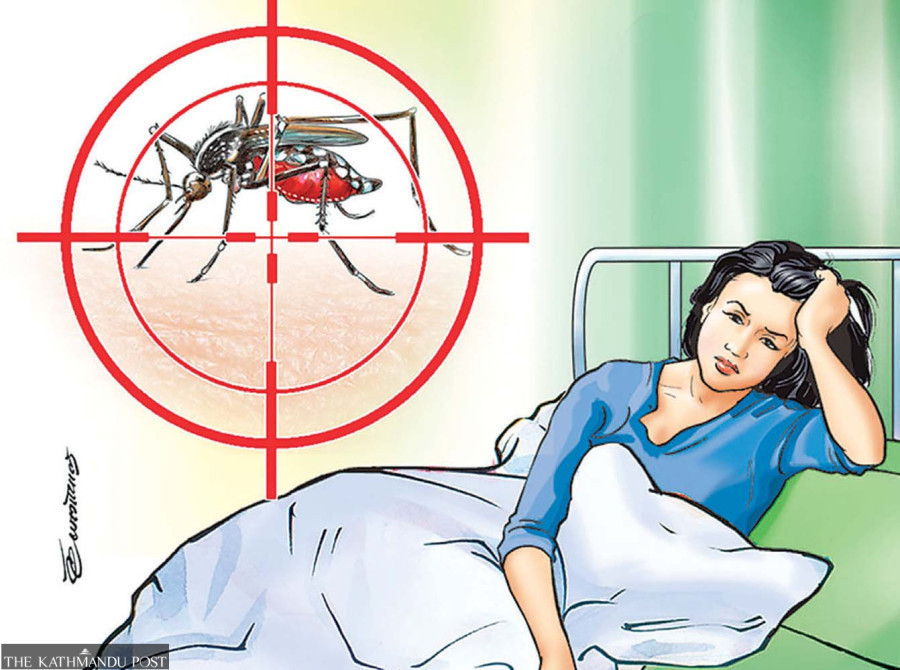Health
Dengue cases remain low in Chitwan this festive season
Health officials warn October and November could still see a spike.
Ramesh Kumar Paudel
Chitwan, which usually records a sharp rise in dengue cases during the festive season, has seen far fewer infections this year. By Sunday, only 81 people had been diagnosed with dengue in the district since mid-July. In comparison, by the same date last year, 1,237 cases had already been confirmed, and the total number of infections rose to 2,872 by December, with one death reported.
Health experts say that while the infection rate appears subdued so far, the months of October and November remain critical. “This year, dengue transmission is very slow. Looking at the current numbers, it may not take a severe form. But October and November are always risky, so we must remain alert,” said Dinesh Rupakheti, chief of the Bharatpur Public Health Office.
Dengue infections in Chitwan have followed a pattern of severe outbreaks every three years, notably in 2016, 2019, and 2022. After 2022, cases were reported annually, but this year’s figures remain significantly lower. “Until 2022, the outbreak was severe every three years, but later it became a yearly pattern. This year, the numbers have dropped sharply,” Rupakheti said.
Officials attribute the lower caseload partly to public awareness and community-level prevention campaigns. The Aedes aegypti and Aedes albopictus mosquitoes, which transmit dengue, breed in stagnant clean water found in containers such as buckets, flowerpots, discarded tyres, bottles, and tanks. “The best way to prevent dengue is to stop mosquito breeding and avoid mosquito bites. Even small amounts of water collected in bottles, drums, or pots can serve as breeding grounds,” Rupakheti said.
According to health officials, Aedes mosquitoes are most active during the day—two hours after sunrise and two hours before sunset. Infected mosquito bites typically cause sudden fever, headache, muscle and joint pain, fatigue, nausea, and body aches. Officials have warned against self-medicating and delaying hospital visits.
“In many cases, complications arise when people avoid health facilities or take medicines without consultation. That has even led to fatalities in the past,” said Ram KC, vector control inspector at the Bharatpur Public Health Office. He added that community-led sanitation drives are underway in neighbourhoods to eliminate larvae and stagnant water. “We must remain active through October and November because that’s when dengue risk is highest.”
Nepal confirmed its first dengue case in Chitwan in 2004 in a foreign national. Since then, the disease has spread across the country, often spiking during the monsoon and post-monsoon months. This year, health authorities say, the disease has not reached high levels nationwide. “If sanitation is improved and people protect themselves from mosquito bites, the infection will remain under control,” Rupakheti said.




 11.12°C Kathmandu
11.12°C Kathmandu1.jpg)














